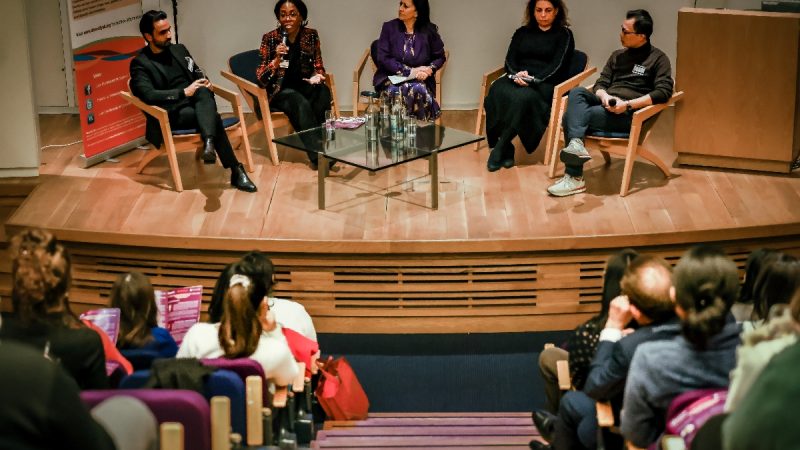Dads earn more while mothers earn less
 While the gender pay gap for men and women in their 20s has almost disappeared, the impact of having children still has a significant impact on the wages of mums and dads, according to new analysis by the think tank IPPR. IPPR analysed data about men and women born in 1958 and 1970, to assess what impact 50 years of feminism has had on the way we live today. IPPR analysis shows how the better known ‘motherhood pay penalty’ has a previously unknown partner: the ‘fatherhood pay bonus’. IPPR’s analysis shows also that while the earnings prospects of women who postpone having children have improved, things have got worse for women who have children earlier.
While the gender pay gap for men and women in their 20s has almost disappeared, the impact of having children still has a significant impact on the wages of mums and dads, according to new analysis by the think tank IPPR. IPPR analysed data about men and women born in 1958 and 1970, to assess what impact 50 years of feminism has had on the way we live today. IPPR analysis shows how the better known ‘motherhood pay penalty’ has a previously unknown partner: the ‘fatherhood pay bonus’. IPPR’s analysis shows also that while the earnings prospects of women who postpone having children have improved, things have got worse for women who have children earlier.
IPPR’s analysis shows:
- Mothers born in 1958 earned 14% less than they would have if they didn’t have children by the time they were 40 (in 1998)
- Mothers born in 1970, also earn less (by their late 30s) than they would have if they didn’t have children (11%) but slightly less than if they had been born a decade earlier.
IPPR’s analysis also shows that mothers earn less than fathers:
Mothers born in 1958 who had children by the age of 40 could expect to earn 32% less than a father born in the same year.
- This ‘motherhood penalty’ has declined slightly. Mothers born in 1970 could expect to earn 26% less than the average father, by their late 30s.
But as well as this ‘motherhood pay penalty’ IPPR’s analysis also shows a ‘fatherhood pay bonus’:
- Fathers born in 1958 could expect to be earning 16% more by the age of 40 than if they decided not to have children.
- This reward for fatherhood increased to nearly 19% for those born in 1970. IPPR also found no evidence that the age men had children had any effect on their earnings.
International academic evidence suggests that both the ‘motherhood pay penalty’ appears to be strongest in countries with policies and cultural values that support the ideal of the male breadwinner and the female homemaker.
Academic evidence suggests that there are a number of factors that can help explain the ‘fatherhood pay bonus’. In some cases, upon becoming fathers, men increase their earning capacity because they feel a greater responsibility to breadwinning for the family (and to compensate for their partners’ reduced earnings). Other research suggests that fatherhood is valued by some employers because of the perceived loyalty it may bring and is therefore rewarded. Other reasons suggest that some fathers wait to have children until they feel like they earn enough to support a family.
Female employment rates in the UK are much lower for mothers than for women without children, and there is much more variation in employment rates between mothers and women without children than there is between men and women without children. OECD data shows that in countries with the highest maternal employment rates, like Iceland, Sweden and Denmark, have high-quality affordable childcare provision and comprehensive parental leave policies.
IPPR’s analysis shows that while the earnings prospects of women who postpone having children have improved, things have got worse for women who have children earlier.
- Women born in 1958 who had their first child later (between the ages of 25 and 32) were likely to earn 12% less than women without children. For women born in 1970 this difference decreased to less than 10%.
- Women born in 1958 who had their first child between 18-24 years of age were likely to earn 17% less than a woman without children. Those born in 1970 who had children at the same age were likely to earn 20% less than women without children.
IPPR’s report will show a strong association between occupational class and the age women have children. Professional men and women are more likely to have children when they are older and much less likely to have children in their teens and early twenties when compared to lower skilled and particularly unskilled men and women. Professional and managerial women are also more likely to not to have children, in contrast to men.
Dalia Ben-Galim, IPPR Associate Director, said: “Women have made lots of progress. Female employment soared in the 1980s, since the mid-1990s girls have been outperforming boys at school at university and in the last decade the gender pay gap between men and women in their twenties has almost disappeared.
“But discussions about gender and pay are often divorced from the wider structural context that drives female disadvantage in work and wages, which is closely associated with their primary responsibility for care, particularly childcare.
“Our analysis of the earnings of women born in 1958 and 1970 suggests that the impact of having children on women’s earning and employment prospects has, on average, improved slightly over time. Most of the mothers of children born in 1958 would have taken a long break from work after having children, and those in relatively good jobs experienced a fall in occupational status and earnings. Their daughters were more likely to return to work quicker, and to maintain occupational status after having children. Full time working women born twelve years later, in 1970, are doing better but mothers are still penalised compared both to women without children and to men with children.
“But we were surprised to find a ‘fatherhood pay bonus’. With dads in the UK tending to work long hours and many fathers still seeing themselves as breadwinners, they may be working longer to make up for their partners working fewer hours.”
For more information about this analysis, click here.




